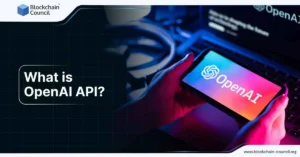Labor and Nonprofit Coalition Urges California AG to Prevent OpenAI’s For-Profit Transition

Labor and Nonprofit Coalition Urges California Attorney General to Halt OpenAI’s For-Profit Transition
Background on OpenAI
OpenAI was established with the mission of conducting research into artificial intelligence (AI) and promoting its potential in a safe manner. Initially formed as a nonprofit organization, OpenAI sought to advance AI technology while ensuring its benefits are shared across society. Over the years, OpenAI has gained significant recognition for its contributions to AI, including the development of models like GPT-3 and DALL-E.
The Shift to For-Profit
In recent developments, OpenAI has proposed a transition from its nonprofit roots to a for-profit model. This change has raised concerns among various stakeholders, particularly labor groups and nonprofit organizations. Critics argue that this shift might prioritize profit over the original mission of advancing AI technology for the public good.
Concerns Raised by Labor and Nonprofits
A coalition of labor and nonprofit organizations is voicing its opposition to OpenAI’s decision to pursue a for-profit structure. They have formally appealed to California’s Attorney General to intervene. Here are the primary concerns expressed by the coalition:
Societal Impact: There is a fear that a profit-driven model could lead to the commercialization of AI technologies at the expense of broader societal benefits.
Job Displacement: Many labor organizations are worried that the automation capabilities of AI could displace workers across various sectors, exacerbating unemployment issues.
Equity and Access: The coalition argues that a for-profit model may limit access to AI innovations, making them available only to those who can afford to pay.
- Transparency and Accountability: With a transition to a for-profit structure, there are concerns that OpenAI may become less transparent in its operations and decision-making processes, impacting accountability.
The Call for Action
The coalition, comprising labor representatives and nonprofit advocates, urges the California Attorney General to take significant action. They believe this will safeguard the interests of the public and ensure that the evolution of AI technologies continues to benefit all individuals rather than just a select few.
Potential Outcomes of the Attorney General’s Involvement
The involvement of the California Attorney General may lead to several possible outcomes:
Investigation: An inquiry into OpenAI’s proposed changes could explore the implications of their for-profit transition, assessing the broader impact on society.
Regulatory Measures: The Attorney General could advocate for regulations that ensure AI development remains aligned with public interests.
- Support for Alternatives: This situation could encourage funding and support for nonprofit ventures that prioritize ethical AI practices.
Broader Implications
The pushback against OpenAI’s for-profit plans is part of a larger conversation surrounding the ethical use of technology. As AI continues to advance rapidly, issues such as equitable access, job security, and ethical development are becoming increasingly important.
The Role of Public Opinion
Public sentiment plays a crucial role in shaping policies related to AI and other technologies. Advocacy groups are working to inform the general public about the potential dangers of prioritizing profits over public interests in the tech sector. By raising awareness, they aim to mobilize public support for regulatory frameworks that protect societal welfare.
Future of Nonprofit versus For-Profit Models
The debate over nonprofit versus for-profit models in tech is not unique to OpenAI. Many tech companies grapple with balancing ethical responsibilities with profit-making ambitions. Exploring hybrid models could be a potential way to mitigate some of these concerns, blending ethical practices with sustainable business operations.
In summary, the conversation surrounding OpenAI’s shift to a for-profit model reflects broader societal dilemmas regarding technology, ethics, and equity. As stakeholders advocate for public interests, the future of AI’s development may rely on ensuring that its benefits are universally accessible.






